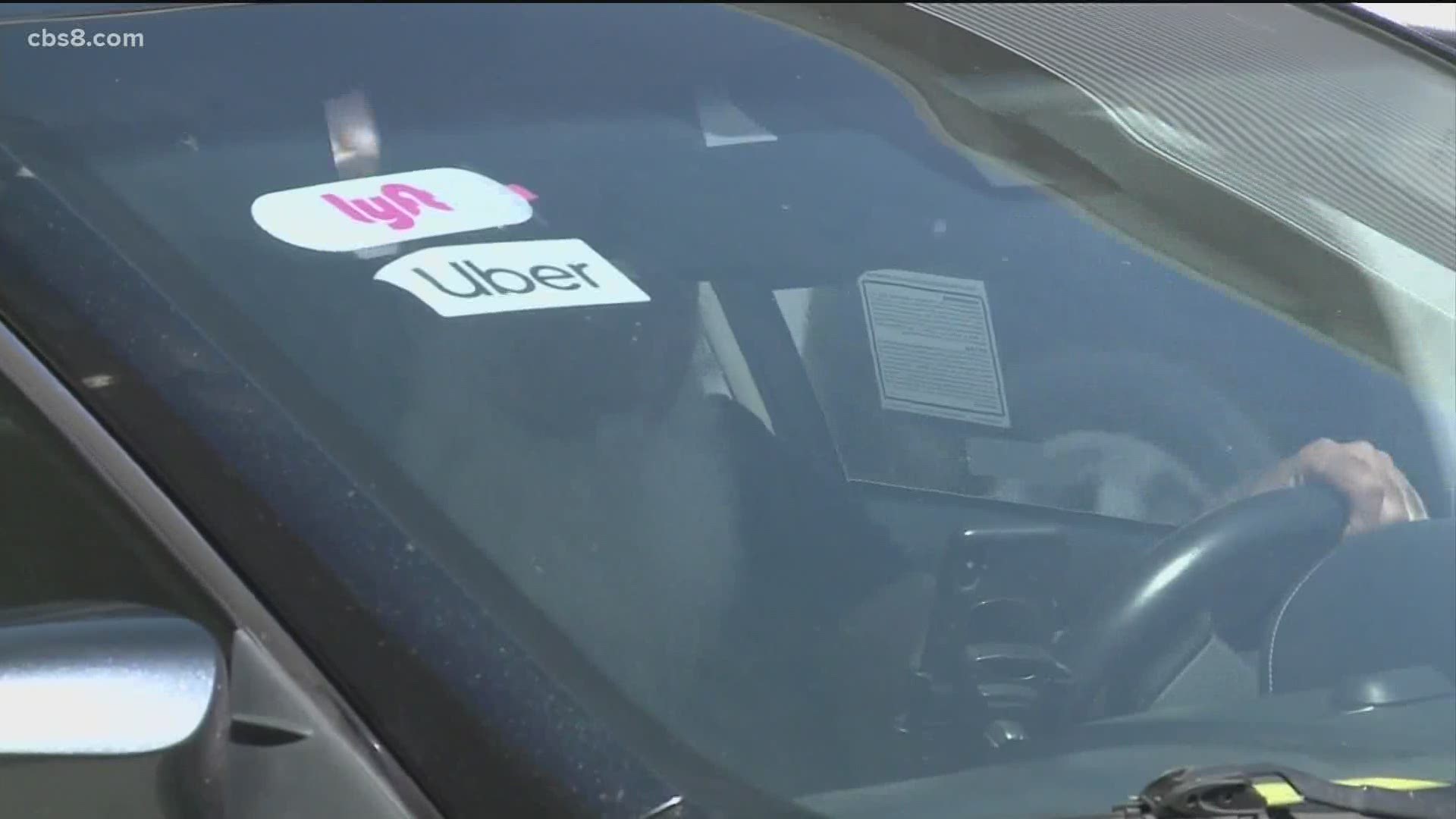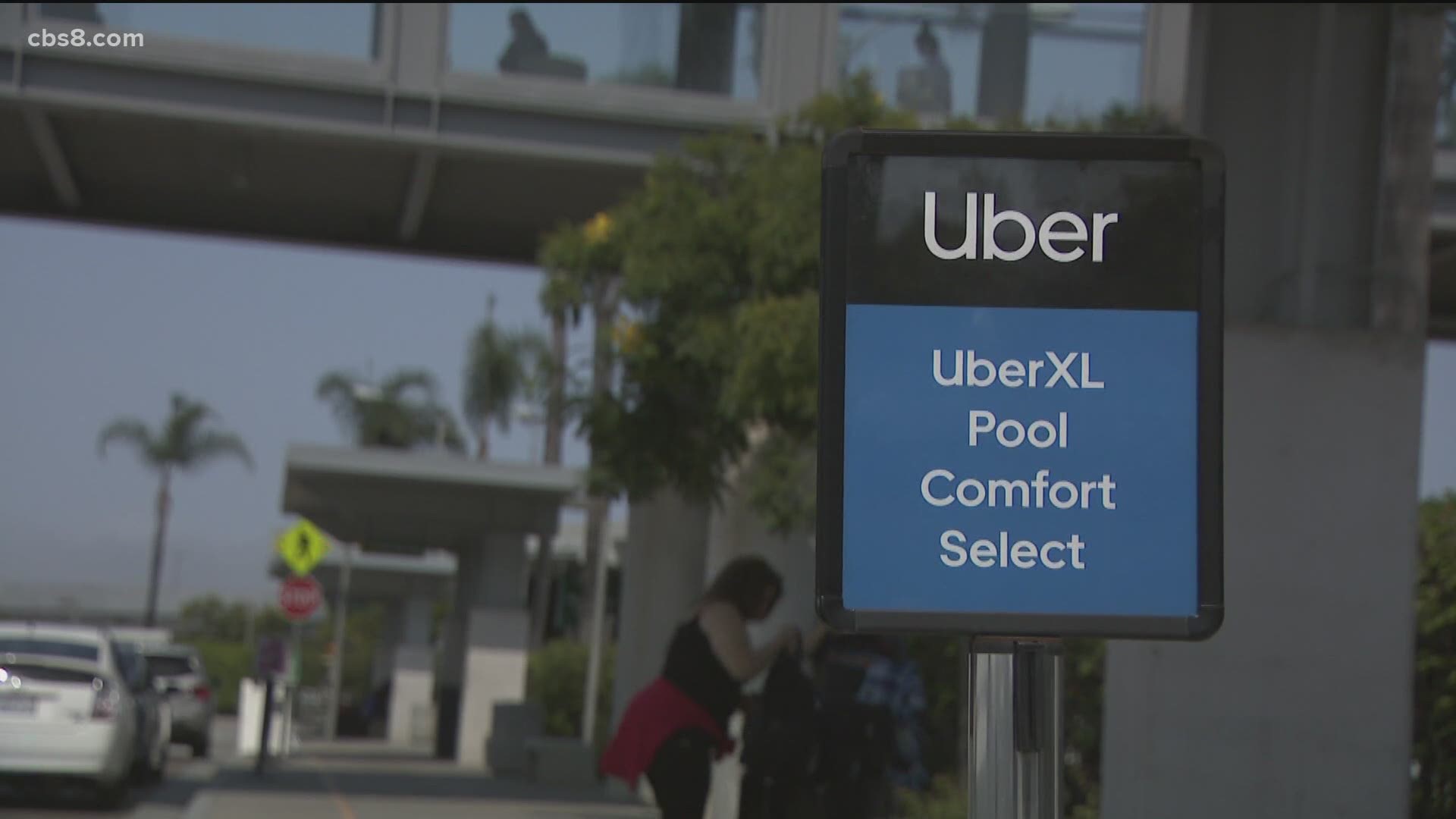CALIFORNIA, USA — Lyft announced it will remain in California Thursday after planning to suspend operations statewide at midnight. Uber made similar threats this week but did not announce a formal plan to do so. The ride-hailing companies are at odds with the state over Assembly Bill 5, which effectively required the companies to reclassify their drivers as employees.
Earlier this month, the companies, and other app-based services, lost a court decision that required them to stop classifying drivers as independent contractors effective August 20.
Supporters of the bill argue it would guarantee wages and assure drivers of other benefits and workplace benefits. The companies, however, said the bill would hurt drivers because it could force them to work set shifts rather than when they wanted.
“It's surreal, man. It's something that it's like we never thought it would happen. And here we are,” said Chris Rios, who drives full-time for both Uber and Lyft. “Honestly, I'm scared and I'm nervous and I don't know.”
Rios does not support A.B. 5 because he said he enjoys the flexibility to set his own hours. Lyft contends four out of five drivers prefer working as contractors, like Rios, for the flexibility.
“I'm just putting in resumes and looking for other types of work but obviously, again, we have flexibility. The money's great versus any other nine to five job that we could get out there,” said Rios.
California Attorney General Xavier Becerra, and the city attorneys of San Diego, Los Angeles and San Francisco successfully argued in a lower court that Uber and Lyft drivers are not contractors under A.B. 5 and the misclassification prevents them from receiving "the compensation and benefits they have earned through the dignity of their labor" such as the right to minimum wage, sick leave, unemployment insurance and workers' compensation benefits.
On Aug. 10, San Francisco-based Judge Ethan Schulman ruled against the companies, but he stayed his decision for 10 days to give them time to appeal. They did so, resulting in Thursday's last-minute ruling putting Schulman's ruling, and the potential departure of Lyft and Uber, on hold.
"No one is forcing Uber and Lyft to throw hundreds of thousands of workers out in the cold. This is a mean-spirited tactic to bully Californians into giving the companies a special exemption from paying minimum wage and unemployment insurance. App companies have had years to fix this, but refuse. Shame on these corporations who are sitting on billions of dollars in cash reserves but are leaving their drivers with nothing,” said Asm. Lorena Gonzalez, who authored A.B. 5.
Uber, Lyft and other app-based companies are supporting Proposition 22 on the November ballot. If passed by a simple majority, it would exempt workers from A.B. 5 and allow the companies to keep classifying drivers as independent contractors.
“I think it’s going to be up to the voters and I really think the voters are going to vote it in because a lot of people [have] been using it and I think [the threat to leave] also could be a bluff, too,” said Frank Caperino, a management lecturer at San Diego State University who expressed support for Proposition 22. “I don't think any business wants to give up California. Right? Even though the work requirements are just so difficult.”
Caperino suggested the companies may decide to shift their business model to work around A.B. 5, such as moving to a franchise model, if they lose their appeal and voters don’t pass Proposition 22.
“In a franchise you could buy territory so somebody can buy a three-mile circle or a certain population of downtown,” hypothesized Caperino. “Maybe you can only take calls in your area, but you can go anywhere around the county. It's possible to work that way.”
The companies have until Aug. 25 to agree to conditions of the case. Uber and Lyft must file a brief by Sept. 4 and submit a sworn statement from their chief executives with a plan to comply with A.B. 5 within 30 days if they lose the case and Proposition 22 doesn’t pass.
Oral arguments are scheduled for Oct. 13.


